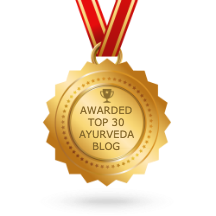Table of Contents
ToggleAllergic Rhinitis Causes:
Allergic rhinitis, also known as nasal allergy or hay fever, is one of the most common respiratory problems seen today. It affects children, adults, and even the elderly, causing symptoms such as sneezing, nasal congestion, runny nose, and itchy or watery eyes.
While conventional treatments like antihistamines and nasal sprays can provide quick relief, they do not tackle the root cause of the condition. That is why symptoms often come back once the medicines are stopped.
For those seeking a long-term, natural, and sustainable solution, Ayurvedic treatment for allergic rhinitis provides a holistic path to healing and permanent relief.
Allergic Sinusitis: Symptoms, Dos and Don’ts for Effective Management :
Understanding Allergic Rhinitis Causes :
Allergic rhinitis occurs when the nasal passages become inflamed due to an allergic reaction to airborne allergens. The most common triggers include:
- Pollen from trees, grasses, and weeds
- House dust mites
- Pet dander
- Mold spores
- Smoke and environmental pollution
- Sudden exposure to cold air or strong fragrances
The immune system mistakenly identifies these harmless substances as harmful, releasing histamines and causing symptoms. Modern treatment focuses on controlling the reaction but does not eliminate the underlying tendency.

Ayurvedic Perspective on Allergic Rhinitis Causes :
In Ayurveda, allergic rhinitis is correlated with Vata-Kaphaja Jirna Pratishyay. The imbalance of Vata and Kapha doshas, combined with the accumulation of Ama (undigested toxins), is considered the primary reason. Environmental triggers then aggravate this imbalance, leading to repeated episodes.
Causative Factors According to Ayurveda :
- Excessive intake of cold, heavy, or oily foods
- Incompatible food combinations (e.g., milk with sour fruits, curd with fish)
- Exposure to cold weather, dust, or pollution
- Suppression of natural urges such as sneezing or yawning
- Weak digestion (Mandagni) and toxin accumulation
- Irregular sleep habits and sedentary lifestyle
- Mental stress and emotional imbalance
When these factors disturb digestion and immunity, toxins block the respiratory channels (Pranavaha Srotas), leading to chronic nasal allergies.
Ayurvedic Management of Allergic Rhinitis :
Ayurveda emphasizes root-cause treatment rather than symptomatic suppression. Management includes detoxification (Shodhana), internal medicines, nasal therapies (Nasya), diet, and lifestyle corrections.
Ayurvedic Medicines Commonly Used :
- Sitopaladi Churna – relieves cough and congestion
- Talisadi Churna – reduces Kapha and improves breathing
- Haridra Khand – acts as a natural antihistamine and immunity booster
- Anu Taila (Nasya) – clears nasal passages and strengthens immunity
- Chitrak Haritaki Avaleha – improves digestion and removes toxins
- Trikatu Churna – supports metabolism and respiratory health
- Shwasa Kuthar Ras – useful in chronic respiratory allergies
⚠️ For children and pregnant women, only safe, customized Ayurvedic medicines are prescribed under expert supervision.
Panchakarma Therapies for Allergic Rhinitis :
Ayurveda recommends Panchakarma therapies for chronic or recurrent cases, as they help detoxify the body and restore balance.
- Nasya Karma (Nasal Therapy): Medicated oil drops administered in the nose to clear channels and reduce sensitivity.
- Vamana (Emesis): Cleansing therapy to eliminate excess Kapha from the body.
- Dhoomapana (Medicated Smoke Inhalation): Clears respiratory passages naturally.
- Shamana Chikitsa (Palliative Therapy): Herbal medicines and Rasayana (rejuvenators) to boost immunity and prevent recurrence.
Dietary Guidelines for Allergic Rhinitis :
Food plays a major role in controlling allergic rhinitis.
Recommended Foods :
- Warm, light, freshly cooked meals
- Herbal teas with tulsi, turmeric, ginger, cinnamon
- Cooked seasonal vegetables, especially greens
- Fruits like pomegranate, apple, and pear in moderation
- Spices such as cumin, coriander, and fennel
- Small amounts of cow’s ghee for lubrication
Foods to Avoid :
- Cold drinks, ice cream, and refrigerated foods
- Curd, especially at night
- Fermented and fried items
- Heavy dairy products like paneer and cheese during acute episodes
- Banana and guava during high Kapha periods
- Refined sugar and bakery items
A disciplined diet enhances the effectiveness of Ayurvedic treatment and prevents recurrence.
Why Choose Ayusanjivani Ayurveda Clinic?
At Ayusanjivani Ayurveda Clinic, Pune, we provide holistic care for allergic rhinitis through:
- Personalized treatment after detailed Ayurvedic diagnosis
- Herbal remedies for safe and natural symptom relief
- Panchakarma therapies for detox and long-lasting results
- Non-drowsy medications suitable for all age groups
- Diet and lifestyle guidance for building strong immunity
Our goal is not just to manage symptoms but to eliminate the root cause and restore balance for sustainable health.
Conclusion :
Managing allergic rhinitis requires more than temporary medicines. Ayurveda offers a comprehensive, root-cause-based approach that balances the doshas, improves digestion, strengthens immunity, and prevents recurrence.
If you are struggling with frequent nasal allergies, sneezing, or sinus congestion, consider Ayurvedic treatment for allergic rhinitis in Pune at Ayusanjivani Ayurveda Clinic. With the right care, you can enjoy long-term relief and better quality of life.





